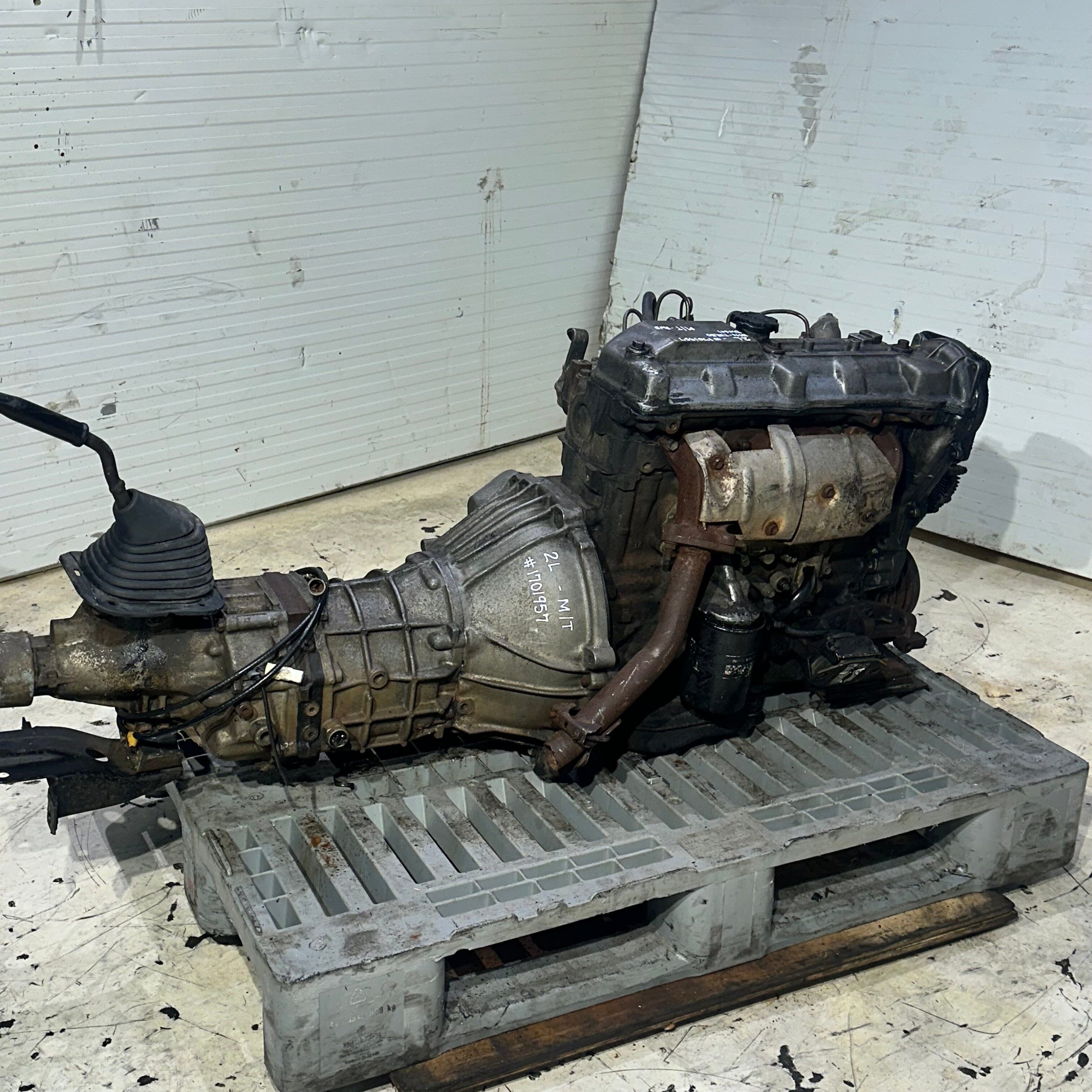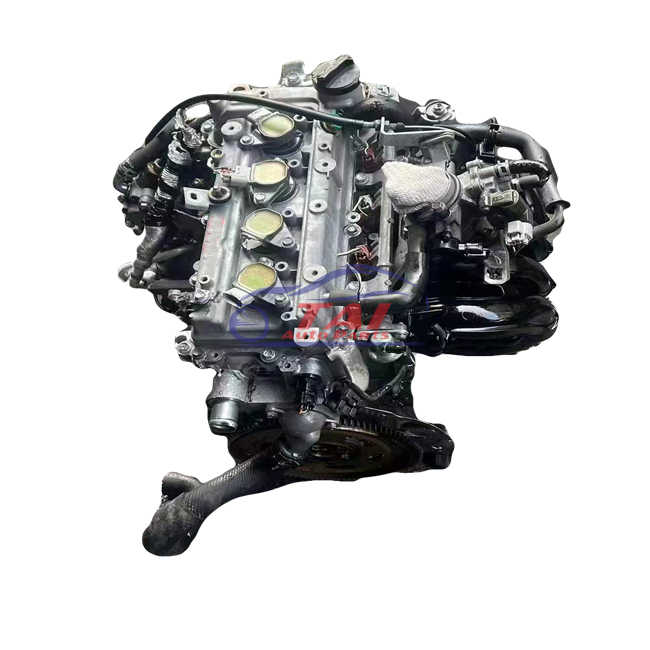Explore High Quality and Value: Your Guide to Getting a Previously Owned Engine
When thinking about the purchase of a pre-owned engine, recognizing the detailed balance between high quality and value is vital. An extensive evaluation of engine background, problem, and reliability is necessary to make certain an audio investment. By performing proper evaluations and research, possible customers can browse the complexities of the marketplace better. Nevertheless, the subtleties of service warranty options and rates methods can significantly influence the total decision-making procedure. As you consider these elements, one concern remains: what details components will ultimately assist your option in this critical financial investment?
Comprehending Engine Types
When thinking about the purchase of a second-hand engine, comprehension of the different engine types is important for making an educated choice. Engines can typically be classified into 2 major kinds: internal burning engines and electrical engines. Inner combustion engines, that include fuel and diesel variations, count on the combustion of fuel to create power. Gasoline engines are typically lighter and rev higher, making them appropriate for performance vehicles, while diesel motor are renowned for their torque and fuel efficiency, commonly favored in durable applications.
On the other hand, electrical engines use electrical power kept in batteries to power the automobile, providing a cleaner choice with less relocating components and lowered maintenance needs. Within these groups, there are further distinctions, such as four-stroke versus two-stroke inner burning engines, and different electrical motor configurations.
Comprehending these differences is critical, as they affect performance, compatibility with existing car systems, and long-term operational costs. By familiarizing oneself with the various kinds of engines available, possible purchasers can better examine their needs and make selections that straighten with their car's requirements and their personal preferences.

Evaluating Engine Condition
A thorough analysis of engine problem is extremely important for any individual taking into consideration the purchase of a second-hand engine. Start with a visual evaluation; check for indications of oil leaks, corrosion, or any kind of physical damage to the engine block. A tidy engine is often a measure of good upkeep methods, while excessive gunk might suggest overlook.
Next, examine the engine's parts, including the timing belt, gaskets, and seals. Search for wear and tear, as these components can be expensive to change. In addition, check out the engine installs, as damaged mounts might cause vibrations and more mechanical issues.
A compression examination is necessary to gauge internal engine health. Consistent compression across all cyndrical tubes suggests a well-maintained engine, whereas considerable inconsistencies may indicate inner damages or wear.
Listening to the engine during a startup can provide valuable understandings; any type of uncommon noises, such as rattling or knocking, might recommend deeper problems. If possible, request an examination run to assess performance under lots. By thoroughly assessing these variables, potential customers can make enlightened choices and secure a top quality used engine.
Monitoring Engine History
Recognizing the engine's background is crucial for making an educated purchase. Understanding of previous usage, maintenance records, and any kind of previous damages can substantially influence the engine's dependability and longevity. Start by requesting the vehicle identification number (VIN) or engine identification number, which allows you to map the engine's history.
Utilize available resources, such as Carfax or AutoCheck, to acquire an automobile background record. This record will certainly provide necessary insights, consisting of crash background, service records, and previous possession information. Toyota RunX RSI. Pay specific focus to any indicators of extreme damage or repeated repair services, which may suggest underlying concerns
Inquire about maintenance regimens carried out on the engine. Regular oil changes, timing belt substitutes, and other safety nets mirror accountable ownership. Furthermore, ask if the engine has undergone any kind of modifications, as non-standard changes can influence performance and compatibility with your automobile.
Finally, preferably, look for confirmation from a trusted technician that can assess the engine's condition based upon its background (Toyota RunX RSI). This thorough examination will certainly aid you make certain and avoid possible challenges that your financial investment is sound and beneficial
Warranty and Return Policies
Acquiring a second-hand engine frequently features varying guarantee and return plans that can substantially influence your decision. When considering a made use of engine, Toyota RunX RSI it is important to completely examine the warranty alternatives provided by the seller. Some suppliers may supply restricted service warranties that cover particular parts for a find out here specified duration, while others might offer more thorough insurance coverage. Comprehending the problems and terms affixed to these guarantees is crucial, as they can influence the long-lasting worth and dependability of your acquisition.

In addition, reputable sellers commonly provide paperwork that lays out the warranty and return procedure, ensuring transparency. Always request for this info before completing your acquisition. A well-defined service warranty and return plan can give assurance and secure your financial investment, making it an indispensable component of the decision-making procedure when acquiring a used engine.
Locating the very best Deals
When looking for the most effective offers on a pre-owned engine, it is critical to perform detailed research study and contrast rates from different sellers. Begin by discovering on the internet markets, automobile discussion forums, and regional salvage lawns to gather a detailed understanding of the marketplace. Making use of cost comparison devices can streamline this process, highlighting competitive prices throughout different platforms.

Think about timing your acquisition strategically. Seasonal variations sought after can influence costs, with certain times of the year using far better bargains. Furthermore, be open to negotiating rates; lots of sellers might want to lower their asking price, specifically if the engine has been detailed for a prolonged period.
Verdict
In summary, buying a second-hand engine necessitates an extensive analysis of high quality and worth. Assessing moved here engine condition through tests and evaluations, confirming its history, and comprehending service warranty and return plans are essential actions.
When considering the purchase of a second-hand engine, comprehension of the different engine kinds is essential for making an informed decision. Engines can normally be categorized into two major kinds: internal burning engines and electrical engines. Gasoline engines are commonly lighter and rev greater, making them appropriate for performance lorries, while diesel engines are renowned for their torque and gas effectiveness, frequently preferred in sturdy applications.
A complete analysis of engine condition is extremely important for anybody considering the purchase of a pre-owned engine. Begin by requesting the lorry identification number (VIN) or engine serial number, which allows you to map the engine's background.
 Keshia Knight Pulliam Then & Now!
Keshia Knight Pulliam Then & Now! Michael C. Maronna Then & Now!
Michael C. Maronna Then & Now! Tina Majorino Then & Now!
Tina Majorino Then & Now! Traci Lords Then & Now!
Traci Lords Then & Now! Sarah Michelle Gellar Then & Now!
Sarah Michelle Gellar Then & Now!